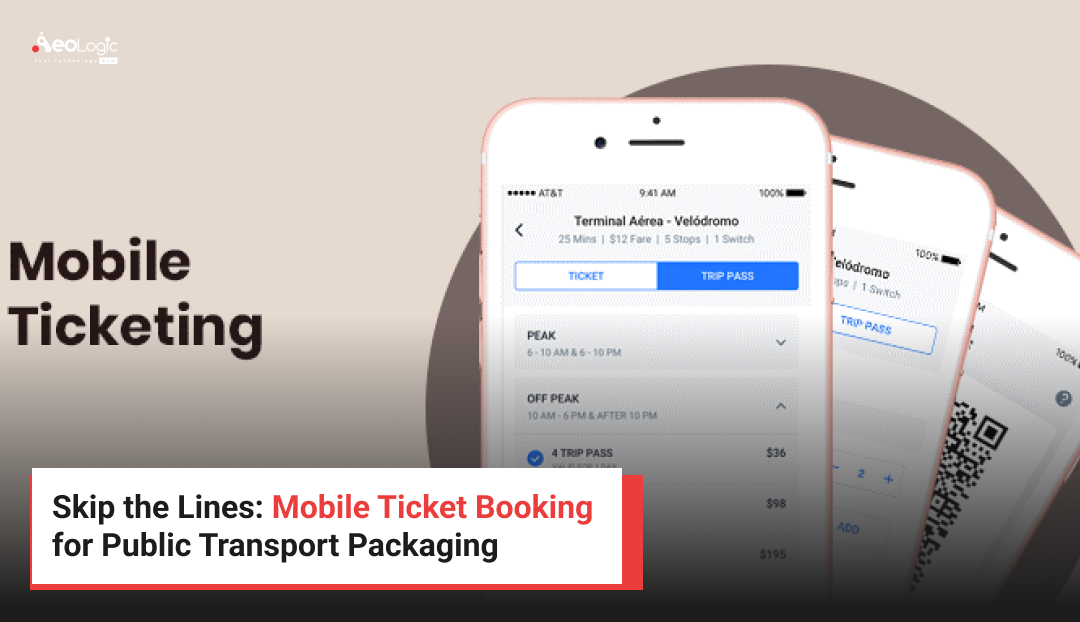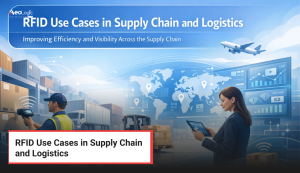Public transport is developing, and the facility is now expected – not a luxury. In a world where smartphones have become essential tools for everyday life, mobile ticket booking is the next logical step for urban mobility. From busy professionals and students to tourists and daily travelers, everyone is looking for fast, safe and more reliable ways to travel.
Imagine running to catch a bus or train, but instead of joining a long queue, you tap your phone and board immediately. This is the magic of mobile ticket booking – a smooth, safe and contactless travel experience that is changing urban dynamics. In some taps, you can book QR tickets, scan them onboard, and air via the post. If you have ever thought how to simplify your daily commute or upgrade transit services in your city, mobile ticket booking key is.
What is Mobile Ticket Booking?
Mobile ticket booking is a digital development of traditional public transport ticket system. This allows passengers to plan their travels, buy and store their travel tickets on their smartphone or suitable device. Instead of printing a paper ticket or standing at ticket counter, users can immediately book their seat or travel through a mobile application or web portal. Once the ticket is confirmed, a digital version is sent to the user’s device – often as a QR ticket or a contactless travel pass – which can be validated when traveling using a scanner or NFC reader.
This technique eliminates dependence on paper-based processes and dramatically improves public transit features, flexibility and access. Whether it is for a one -time bus ride, a daily metro commute, or a long -long train trip, mobile ticket booking ticketing for user’s fingers, which streamlets the entire experience to boarding from search to boarding. It is particularly useful in dynamic urban settings, where timely and dynamics efficiency are top preferences.
Top Benefits of Mobile Ticket Booking
The standout benefits of mobile ticket booking is the ability to bypass long queues and ticket counters, saving passengers valuable time during peak hours. With the rapid speed of urban life, this advantage makes the mobile ticket alone highly attractive. The process is completely digital and allows for immediate transactions, meaning that tickets can be purchased from anytime and anywhere – whether you are on your way at the station or planning to travel from home.
Beyond the convenience, mobile ticket booking is a cashless, contactless solution. It supports digital payment methods such as UPI, Credit/Debit Card, Mobile Wallet and even tap-to-pay technology. This not only improves hygiene-especially simplifies the fare collection for relevant-Boking transit officers in a post pandemic world.
Technology also increases operational efficiency. Transport operators can track usage in real time, reduce fraud through safe QR code and verify, and eliminate the costs related to physical ticket printing and distribution. Additionally, rapid boarding speed and customized route plan improves better congestion management and better transit flow depending on app analytics.
Mobile ticketing platforms include often underlying features such as trip planning, real-time bus/train tracking, and push notifications. These devices keep the passengers informed and attached, which further enhances the overall travel experience. In short, mobile ticket booking is benefited not only through the passengers, but also through the wise, clever, more sustainable transport solutions through the operators, the city planners and the environment.
How It Works: QR Tickets & Contactless Travel Passes
With QR tickets, users begin by selecting their route and date of travel through an app or web portal. Once the payment is made, a unique QR code is generated and digitally distributed. Onboarding, travelers scan only QR code to validate their journey. This system is quick, easy and environmentally friendly.
In contrast, contactless travel passes are often stored in digital wallets such as Apple Wallet or Google Pay. These pass passes use NFC technology, allowing passengers to tap their phone on a reader to achieve only access. This method does not need to scan the QR code and can be even faster in a high-trafficking urban transit environment.
Cities like London, Tokyo and New York have adopted a widely contactless ticketing system in place of traditional paper-based methods. According to a visa report, 94% of people of public transit riders expect contactless payment options, which outlines the increasing demand for digital facilities in public transport.
Use Cases: Bus, Train, and Multimodal Journeys
In the case of bus booking, Indian cities have seen an increase in the use of QR-based systems on both government and private buses. This has reduced the dependence on cash and helped to resolve fare disputes. For train booking, Indian Railways has launched apps like Rail on, which offer live train tracking and mobile ticket generations, which improves passenger facilities significantly. The metro system has also seen digital changes. For example, Mumbai Metro has enabled passengers to book tickets through WhatsApp, show flexible and user-friendly ticketing. At the international level, Japan’s Suika card and Australia’s Opal Card allow a simple transition between buses, trains and trams using contact -free passes. These multimodal solutions display scalability and adaptability of mobile ticketing technologies.
Integration with Smart City Infrastructure
Since more cities invest in smart infrastructure, mobile ticket booking systems are becoming integral for urban development strategies. These platforms can be integrated with IOT-competent devices, monitoring systems, traffic management equipment and real-time analytics dashboard. By collecting travel pattern data, city planners can improve route efficiency, reduce congestion and distribute civil-centric services. This data-driven approach ensures that the transport system dynamically suits the real-world commutate needs.
Environmental Impact of Paperless Travel
Changes in mobile ticketing provide significant environmental benefits. Traditional ticketing methods consume tons of tons of paper annually. By adopting digital ticketing systems, city can significantly reduce the use of paper, the energy required for cut and printing and distribution on waste. Additionally, low cash transactions mean low carbon footprint associated with banking logistics, which prefers a greenery for mobile ticket urban mobility.
Enhanced Accessibility and Inclusivity
Modern mobile ticketing platforms also support multilingual interfaces, voice commands, and assistant technologies, making public transport more inclusive for disabled individuals, elderly passengers and non-indigenous speakers. In addition, travel, book and navigating ability within a single app increases access to users in semi-urban and rural areas, especially when combined with offline ticket booking features or SMS-based options.
Data Security and Compliance
Security is paramount in any financial transactions. Mobile ticketing apps follow stringent protocols such as PCI DSS compliance, payment data tokening and multi-factor authentication. Safe QR code and encrypted NFC transactions protect users from fraud and identity theft. These platforms also follow GDPR and other regional privacy laws, ensuring that data is stored, processed and shared with responsibility.
Challenges in Implementation
By having many advantages, the implementation of the mobile ticket booking system is not that easy. An important issue is digital literacy. In rural or economically urban areas, some passengers may struggle with navigating smartphones or not easily understandable apps. It asks for simplified UI/UX and multiple language support.
Another challenge is the readiness of the infrastructure. Old buses and stations may lack hardware required to validate digital tickets, such as QR scanner or NFC readers. These systems require capital investment and operational downtime to retrofit, which is hesitant to absorb certain transit officers.
There are also concerns around interoperability. Different fields and agencies often adopt different platforms, making it difficult for travelers to use the same solution in cities. Developing standardized APIs and promoting inter-agency cooperation are important steps towards solving it.
Real-World Cases
- London’s oyster and contactless payment system is a global benchmark in mobile ticketing. With a combination of smart cards and open-loop contactless cards, London ensures seamless commuting on buses, underground and over ground rails.
- The simple system of Singapore gives passengers directly to pay their bank cards and mobile wallets to pay for travel, which removes the requirement of a completely separate transport card. It has reduced the cost and better facility of issuing cards.
- In India, The Delhi metro introduced the ticket booking app based on QR code feature. Which allows the passengers to book ticket without standing in long lines.
- Sweden’s SL app integrates root planning, real-time traffic updates and mobile ticketing into a platform, offering a model for smart mobility solutions worldwide.
Future of Mobile Ticket Booking
As the cities become smarter, the future of mobile ticket booking will move beyond the standalone app. The blockchain-based ticketing system is on the horizon for integration with the AI-powered travel assistants, the future analytics for the plan of demand, and the prevention of fraud.
In addition, we can expect mobile ticketing providing integrated access to buses, trains, taxis, e-bikes, and ride-shares in an app. This will make urban mobility more individual, comfortable and efficient than ever.
Frequently Asked Questions (FAQs)
What is mobile ticket booking?
The purchase of public transport tickets through mobile ticket booking smartphones means. These tickets are usually given as the QR code or contactless wallet pass, which users validate at the time of boarding.
Are QR tickets safe?
Yes. QR tickets are generated specific for each transaction and include time tickets and safety tokens that ensure their authenticity. Check these details in real time to prevent the verification system fraud.
Can I use mobile tickets for many transport modes?
Absolutely. Many systems now support multimodal travel, allowing passengers to use a mobile ticket in buses, trains and metro. It is particularly useful for integrated urban transport systems.
Are payment methods accepted?
Most platforms accept various types of payment methods including Google Pay and Apple Pay, Debit and Credit Card, UPI and even mobile wallets such as EMV-based tap-to-pay cards.
How can transport operators apply mobile ticketing?
Transit agencies can adopt mobile ticketing by deploying QR or NFC-competent verification in their fleet. Many sellers provide turns solutions, including custom mobile apps and backend integration services.
Original Insights & Stats
Mobile ticketing market is developing rapidly. Online bus tickets alone are estimated to reach $ 22.6 billion by 2030, growing in CAGR of 14.9%. The Covid-19 epidemic intensified changes in contactless systems, with a transact-free transaction doubling and now there are more than 300 million contact-free cards. Increase the ridership by 9.5% and reduce operational costs by about 30% by using contactless systems reported by VISA.
In India, regional initiatives have shown promising results. Karnataka State Road Transport Corporation (KSRTC) recorded more than 3.2 million in UPI-based mobile ticketing transactions within five months of starting the service. Similarly, WhatsApp booking service of Mumbai Metro has quickly become one of the most commonly used ticketing options, which is only the second after paper-based QR tickets.
In Bengaluru, the BMTC app enables real-time bus tracking and QR-based fare payments, which have improved time and security of time for passengers. These real-world implementations describe the immense potential of mobile ticket booking in both urban and semi-urban areas.
Conclusion
Mobile ticket booking is changing public transport by launching equal speed, safety and simplicity for passengers and operators. This marks a decisive change of how the attitude of the dynamics of the cities-the first change the chronic systems with the digital solution that support both scalability and stability.
For passengers, advantages are immediate: low waiting time, spontaneous payment and real -time travel update. For transport officials, shift data-operated decisions unlocking, operational savings and increased public service distribution. As cities grow and mobility is more needed, mobile ticketing is in the form of a critical environment of smart urban transport.
Transform enterprise workflows through a mobile application development company Noida delivering custom mobile solutions that integrate seamlessly with existing enterprise systems.
How Aeologic can help?
In Aeologic Technologies, we help transport operators and government bodies adopt modern, scalable and safe mobile ticketing solutions. From developing custom apps to integrate with QR scanners, NFC systems and cloud-based transit dashboards, we provide end-to-end implementation to suit your operating goals.
Whether you are launching a pilot in the same city or deploying nationwide smart ticketing solutions, our team brings necessary expertise and innovation for successful results.
Contact Aeologic Technologies Today:
Call: +91-120-3200058
Click to Connect: Aeologic Technologies– Schedule a free consultation
Visit Us: Tower-C, 324-327, 3rd Floor, Logix Cyber Park, Plot no. C-28 and 29, C Block, Phase 2, Industrial Area, Sector 62, Noida, Uttar Pradesh.

9+ years experienced Software Engineer with a demonstrated history of working in the information technology and services industry. Skilled in iOS,Flutter, Software Development, Objective-C, Xcode, and Swift. Strong engineering professional graduated from UPTU.






